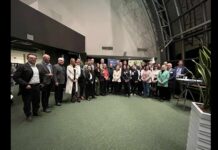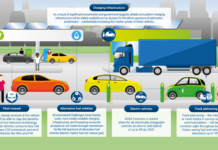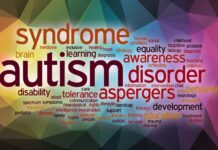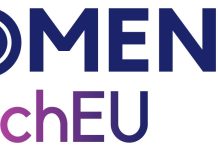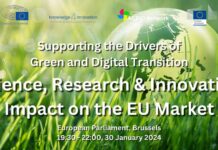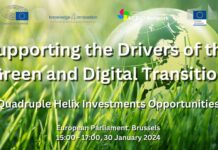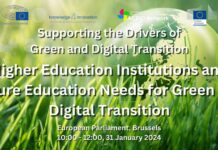The head of this working group is Nemanja Milenkovic, MSc.
“One of the great challenges of every ‘European capital of culture’ is how to translate its complexity, in every sense, and bring it closer to as many people as possible, without losing the quality of the artistic vision. In the case of Novi Sad, when in 2022 you will have more than 1,500 events with 4,000 artists from all over the world, all joined in the catchphrase ‘For new bridges’ with which we won and from which we consistently developed a unique program concept.”
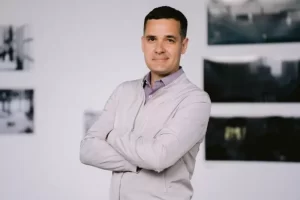 Nemanja Milenković is a branding expert who has been working on the brand development of people, products, companies, and destinations for almost 30 years. Combining humanities (history professor) and practical sciences (industrial management engineer), he created his own specific approach to brand development with non-formal education as an NLP coach, PEAT processor and brand coach. He is currently pursuing a doctorate in tourism. As the Mercator Public Relations Manager for Southeast Europe and Chairman of the Board of Directors of the EXIT Foundation, he completed his extensive experience gained through various levels of organisations: from small and medium enterprises to large companies and corporations in the public and private sector. For the last ten years, he has primarily dedicated himself to branding (micro) destinations: cities, municipalities and neighbourhoods. Through various leadership positions and with different teams, he helped Novi Sad win 6 prestigious European awards in one decade: two-time winner of the Best Major European Festival award (2013 and 2016), the title of European Youth Capital (2019), the Winner of the European Trend Brand Award (2021), the title of Novi Sad European Capital of Culture (2022), as well as the Melina Mercouri International Prize, given to the most successful European Capitals of Culture.
Nemanja Milenković is a branding expert who has been working on the brand development of people, products, companies, and destinations for almost 30 years. Combining humanities (history professor) and practical sciences (industrial management engineer), he created his own specific approach to brand development with non-formal education as an NLP coach, PEAT processor and brand coach. He is currently pursuing a doctorate in tourism. As the Mercator Public Relations Manager for Southeast Europe and Chairman of the Board of Directors of the EXIT Foundation, he completed his extensive experience gained through various levels of organisations: from small and medium enterprises to large companies and corporations in the public and private sector. For the last ten years, he has primarily dedicated himself to branding (micro) destinations: cities, municipalities and neighbourhoods. Through various leadership positions and with different teams, he helped Novi Sad win 6 prestigious European awards in one decade: two-time winner of the Best Major European Festival award (2013 and 2016), the title of European Youth Capital (2019), the Winner of the European Trend Brand Award (2021), the title of Novi Sad European Capital of Culture (2022), as well as the Melina Mercouri International Prize, given to the most successful European Capitals of Culture.
*During the 20 years of the EXIT festival, we have listened to and enjoyed the performances of more than 8,000 artists at the Fortress. Listening to the complete line-up of one edition of the EXIT festival would take more than 1,120 hours, which means that it would take 51 days to listen to all of the performances in succession.(3.) Over 15,000 songs are played during one edition of the festival.(4.) In the two decades of its existence, almost 3,500,000 visitors from as many as 90 countries worldwide have attended the EXIT festival.(5.) From the very beginning, EXIT camp has been a gathering place for many young people, and we can proudly say that our camp has hosted more than 110,000 people from various countries. Research Shows: In 20 Years, EXIT has brought More Than 200 million Euros to the Serbian Economy.( https://www.exitfest.org )
The Culture, Creativity, and Inclusive Society Working Group would have a specific focus on harnessing the power of culture and creativity to create a more inclusive and equitable society. It would aim to promote diversity, embrace different perspectives, and ensure that cultural and creative opportunities are accessible to all members of the community. Here are some potential areas of focus for such a working group:
- Cultural Diversity and Representation: Prioritizing the representation of diverse cultural backgrounds, ethnicities, genders, and identities in cultural and creative initiatives.
- Inclusive Creative Spaces: Creating safe and welcoming spaces where individuals from all backgrounds can express themselves creatively without fear of discrimination or exclusion.
- Collaborative Projects: Encouraging collaborations among artists, creators, and communities to bridge cultural gaps and foster understanding.
- Access and Participation: Working to eliminate barriers that prevent marginalized groups from accessing cultural and creative opportunities, such as financial, physical, or technological barriers.
- Inclusive Storytelling: Promoting narratives that highlight the experiences and voices of underrepresented communities, challenging stereotypes and fostering empathy.
- Cultural Education and Awareness: Developing educational programs that raise awareness about different cultures, histories, and social issues to promote understanding and tolerance.
- Empowerment through Creativity: Providing platforms for marginalized individuals to share their stories, experiences, and talents, empowering them to have a voice and agency.
- Cultural Equity in Funding: Advocating for fair distribution of resources and funding to ensure that cultural and creative initiatives from all backgrounds receive support.
- Intersectionality: Recognizing that individuals hold multiple identities and addressing the unique challenges faced by those at the intersection of different marginalized groups.
- Art as Advocacy: Using artistic and creative expression as a tool for advocating social change and addressing systemic inequalities.
- Community Engagement: Engaging with local communities to understand their needs and aspirations, and involving them in shaping cultural and creative initiatives.
- Cultural Sensitivity Training: Providing training for cultural and creative professionals to ensure they approach their work with sensitivity and respect for diverse perspectives.
- Inclusive Events and Festivals: Organizing events and festivals that celebrate a wide range of cultures, traditions, and art forms, showcasing their richness and diversity.
- Collaboration with NGOs: Partnering with non-governmental organizations that work on issues related to inclusivity, diversity, and social justice.
- Evaluation and Assessment: Regularly assessing the impact and effectiveness of cultural and creative initiatives in promoting inclusivity and making necessary adjustments.
The overall aim of this working group would be to foster an environment where everyone can participate in and benefit from cultural and creative activities, regardless of their background or identity. The group would play a crucial role in shaping policies, initiatives, and projects that contribute to building a more inclusive and equitable society through culture and creativity.










